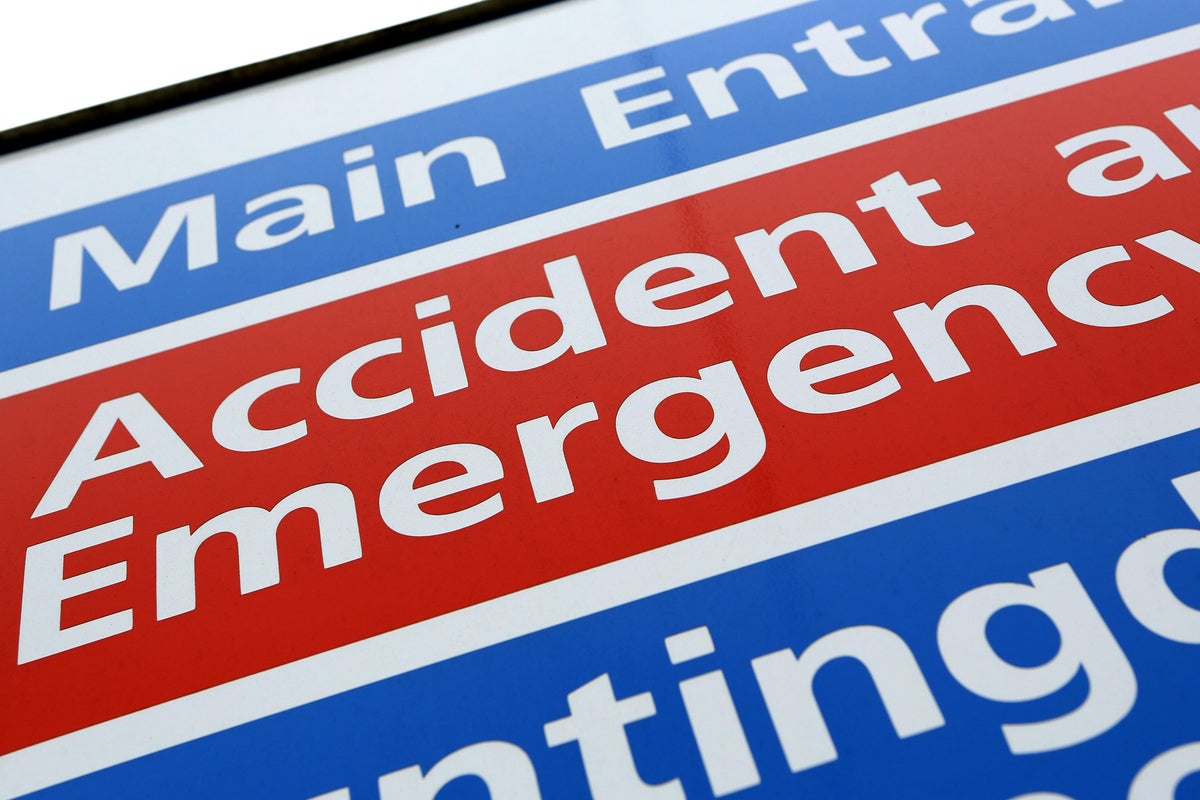
People with mental health problems are waiting days for treatment in busy emergency departments, according to new analysis.
NHS staff described some patients as “massively distressed and struggling” while waiting in A&E, and on occasion becoming aggressive.
The Royal College of Nursing (RCN) has called for “urgent and sustained” investment in community services to ensure patients get timely care.
A Freedom of Information (FOI) investigation by the RCN found A&E waits of 12 hours or more for mental health patients in England had increased five-fold between 2019 and 2025.
Responses from 75 NHS trusts revealed around 1.3 million people had attended emergency departments in a mental health crisis during this period.
And responses from 38 trusts showed the number of patients waiting more than 12 hours for a bed in a mental health unit after a decision to admit climbed from 1,090 to 5,260.
A senior nurse in the south-west of England said: “Lots of people will just come and wait and be patient.
“But as you can imagine, some of them are in severe crisis. They want to leave. They want to self-harm. They are massively distressed and struggling.
She added that when patients reached crisis, it could divert a whole team of senior nurses, security personnel and emergency services to keep them safe.
A senior nurse in one London hospital also told the RCN that a patient who had been waiting three days for a bed became aggressive, smashed a window and threatened staff.
Professor Nicola Ranger, general secretary and chief executive of the RCN, said: “Severely ill mental health patients waiting days for treatment in stressful and brightly lit A&Es is a scandal in plain sight.
“These conditions are not ‘the norm’ and nursing staff will not accept them.
“If parity of esteem between mental and physical health is to mean anything, then these utterly degrading waits must end.”
Separate analysis by the RCN, released at its annual congress in Liverpool, found beds in mental health units had declined by 17% in the last 10 years, with 3,699 fewer beds overall.
The union also said the number of mental health nurses per every 10,000 mental health patients in England had almost halved in the last decade.
Prof Ranger said: “Nothing less than urgent and sustained investment in community mental health nursing can ensure everybody gets timely care in the right place.
“That is how you turn people’s lives around and ease pressure on emergency departments.”
Alexa Knight, director of England at the Mental Health Foundation, said: “The frequency of people attending A&E experiencing a mental health crisis clearly shows that not enough people are receiving mental health support at the best time – early in their journey.
“By putting in place preventative and community-based early interventions, which evidence shows are cheaper and work more effectively than treating people at crisis point, the UK Government could reduce pressure on the NHS, free up the time of nurses and doctors, and help everyone have better mental health.
“Charities, voluntary sector organisations, and mental health nurses in the community are best placed to support the delivery of these interventions – but they desperately need the funding to do so.”
A Department of Health and Social Care spokesperson said: “People with mental health issues are not getting the support or care they deserve, and we know that many NHS staff feel burnt out and demoralised, having been overworked for years.
“That’s why this Government is investing an extra £680 million in mental health services this year, to help recruit 8,500 more mental health workers, and put mental health support in every school.
“We have also launched one of the world’s first 24/7 mental health crisis support services via NHS 111 and announced a £26 million investment in new crisis centres, to ensure patients can get timely support from a trained mental health professional.”
It comes as the patient safety watchdog said that mental health hospitals are not always acting on recommendations made to improve the safety of patients.
The Health Services Safety Investigations Body (HSSIB) said this leads to “missed opportunities to learn, improve and prevent harm to patients and NHS staff”.
Starmer faces criticism over immigration plans
Islamic State fighters who returned to UK must face justice, says committee
Pension providers ‘to boost saver outcomes and UK growth’ under new initiative
Cable fault causes London Underground disruption and fire
Olympic champion Keely Hodgkinson to be honoured at Windsor Castle
Dutch hope to make Eurovision final after last year’s disqualification







